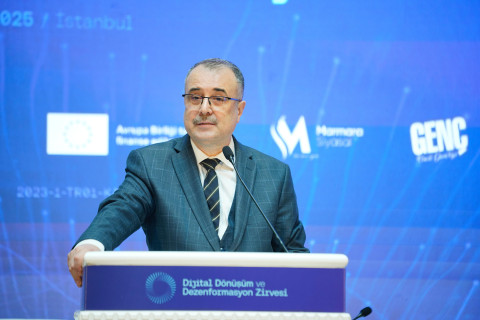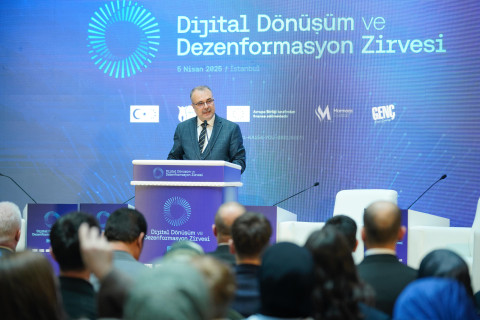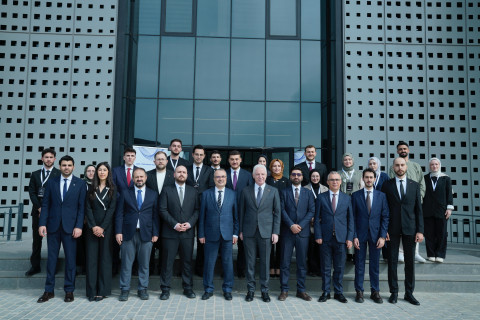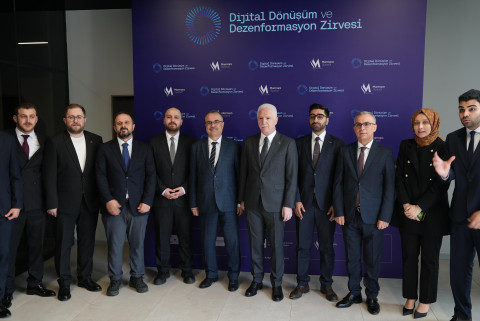The "Digital Transformation and Disinformation Summit", organized by the Marmara University Faculty of Political Sciences Alumni and Members Association, was held on 5 April 2025 at the Recep Tayyip Erdoğan Complex. The event was hosted by Marmara University and attended by Istanbul Governor Davut Gül, Marmara University Rector Prof. Dr. Mustafa Kurt, Maltepe District Governor Bahri Tiryaki and protocol members.
In his speech, Davut Gül, Governor of Istanbul, highlighted the significant rise in consumption, emphasizing the transformation of both consumption and production habits. He went on to explain how developments in digital transformation, especially artificial intelligence, have a positive or negative effect on the individual, public, society and family. In order to prevent the spread of misinformation, which is shared much more rapidly than accurate information, Gül suggested that certain measures should be taken, such as informing citizens, promoting media and digital literacy.
Rector Prof. Dr. Mustafa Kurt stated that one of the most fundamental problems that comes with the digital age is how the state should adapt to digital transformation processes. He highlighted that the digital transformation poses significant challenges, including cyberattacks, data breaches, privacy violations, and digital inequality. Kurt emphasized the necessity for states to formulate new policies and strategies to safeguard their digital infrastructure and ensure public safety in the digital realm. He identified disinformation as the most pressing threat, characterizing it as the rapid propagation of false and misleading information on digital platforms with the intent to manipulate society.
Rector Kurt also commented on the summit, which explored the implications of digitalization for the state, society, family and individuals from multiple perspectives, stating, "I am confident that it will enhance our comprehension of the opportunities and challenges posed by this significant transformation."
The summit was organised in three sessions: The first, entitled "The State in the Digital Age: Security, Transformation and Challenges", focused on the evolving nature of security in the digital age, with particular reference to the challenges posed by disinformation. The second session, "The Multidimensional Threat of Disinformation from Local to Global", addressed the global reach of disinformation and its potential implications. The third and final session, "Opportunities and Threats in the Digital Reconstruction of Society and Family", explored the implications of digital technology on society and family structures, with a focus on the potential opportunities and challenges arising from the digital transformation.




